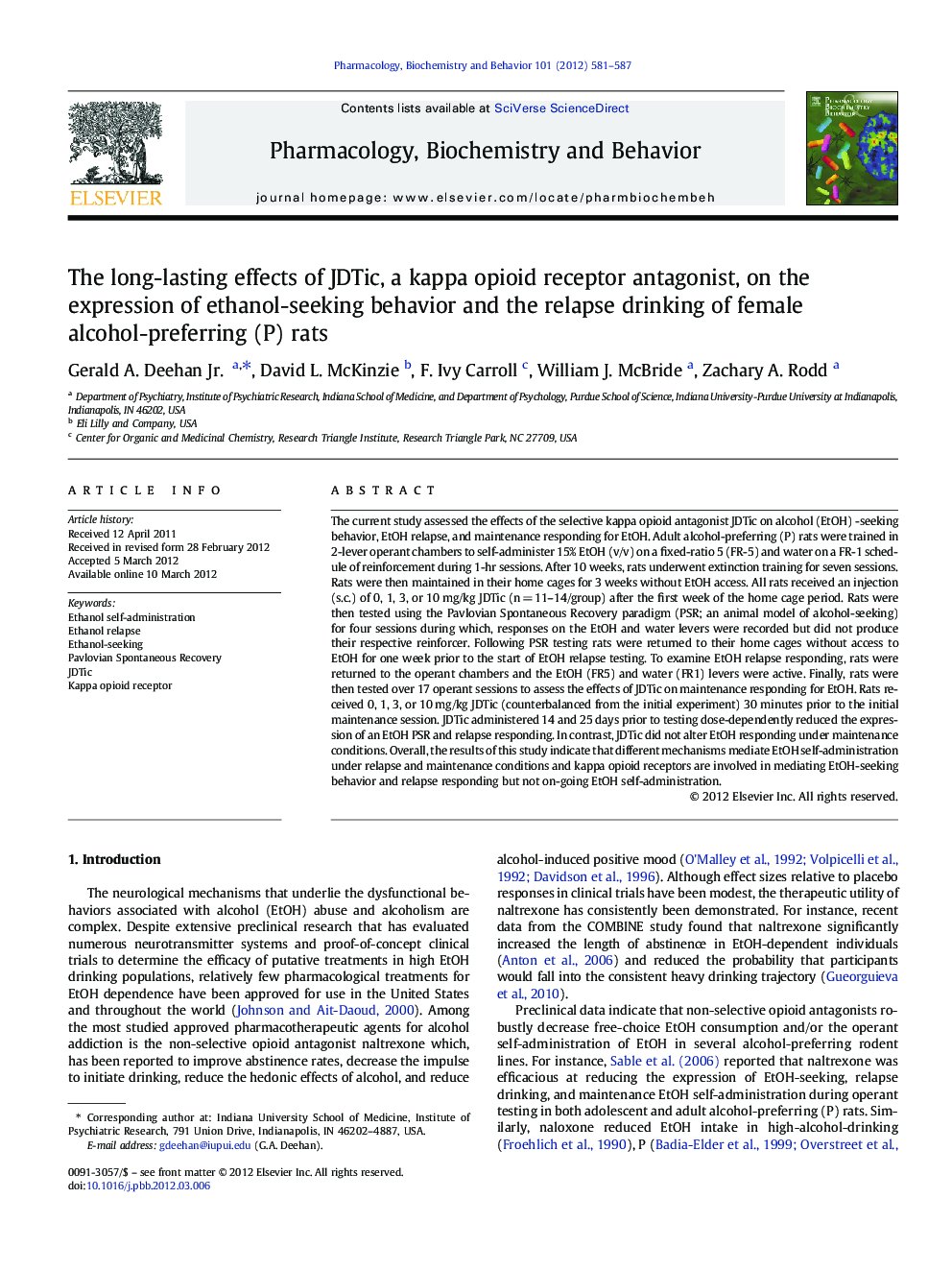| Article ID | Journal | Published Year | Pages | File Type |
|---|---|---|---|---|
| 2013231 | Pharmacology Biochemistry and Behavior | 2012 | 7 Pages |
The current study assessed the effects of the selective kappa opioid antagonist JDTic on alcohol (EtOH) -seeking behavior, EtOH relapse, and maintenance responding for EtOH. Adult alcohol-preferring (P) rats were trained in 2-lever operant chambers to self-administer 15% EtOH (v/v) on a fixed-ratio 5 (FR-5) and water on a FR-1 schedule of reinforcement during 1-hr sessions. After 10 weeks, rats underwent extinction training for seven sessions. Rats were then maintained in their home cages for 3 weeks without EtOH access. All rats received an injection (s.c.) of 0, 1, 3, or 10 mg/kg JDTic (n = 11–14/group) after the first week of the home cage period. Rats were then tested using the Pavlovian Spontaneous Recovery paradigm (PSR; an animal model of alcohol-seeking) for four sessions during which, responses on the EtOH and water levers were recorded but did not produce their respective reinforcer. Following PSR testing rats were returned to their home cages without access to EtOH for one week prior to the start of EtOH relapse testing. To examine EtOH relapse responding, rats were returned to the operant chambers and the EtOH (FR5) and water (FR1) levers were active. Finally, rats were then tested over 17 operant sessions to assess the effects of JDTic on maintenance responding for EtOH. Rats received 0, 1, 3, or 10 mg/kg JDTic (counterbalanced from the initial experiment) 30 minutes prior to the initial maintenance session. JDTic administered 14 and 25 days prior to testing dose-dependently reduced the expression of an EtOH PSR and relapse responding. In contrast, JDTic did not alter EtOH responding under maintenance conditions. Overall, the results of this study indicate that different mechanisms mediate EtOH self-administration under relapse and maintenance conditions and kappa opioid receptors are involved in mediating EtOH-seeking behavior and relapse responding but not on-going EtOH self-administration.
► The Kappa opioid receptor mediates some alcohol related behaviors. ► We investigated the effect of JDTic on alcohol related behaviors. ► JDTic decreased alcohol seeking and relapse but not maintenance responding. ► The Kappa opioid receptor mediates alcohol seeking and relapse but not maintenance. ► Kappa opioid receptors represent therapeutic targets for the treatment of alcoholism.
